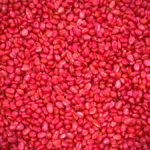In 1962 environmental scientist Rachel Carson published Silent Spring, a bestselling book that asserted that overuse of pesticides was harming the environment and threatening human health. Carson did not call […] Read more
Tag Archives insecticides

Opinion: Hearing the Silent Spring 60 years on
A reflection on what we’ve learned about pesticides since publication of the bestseller

U.S. trade commission sues pesticide makers, alleging price scheme
Washington | Reuters — The U.S. Federal Trade Commission on Thursday sued two top pesticide manufacturers for allegedly entering into exclusive contracts with distributors that kept prices paid by farmers […] Read more

Concerns grow over control-resistant pests
Corn rootworm and spider mites top list of concerns in summer 2022
Two significant insect pest problems have occurred this year, both stemming in part from building resistance to controls. Corn rootworm tops the list, according to Tracey Baute, field crop entomologist […] Read more

Pesticide regulation changes move ahead
Amendments will allow for less paperwork when using neonicotinoids
Farmers trying to access corn and soybean seed treated with neonicotinoid insecticides still must submit evidence showing the technology is required on their farms. However, the Ontario government says it […] Read more

Neonic paperwork burden reduced
There will be less requirement for regular renewals of risk assessment processes
Ontario’s government is streamlining the regulations around neonicotinoid insecticides and that should reduce the amount of paperwork required to manage the seed treatment. The changes will also decrease the need […] Read more

New neonic study points to songbird decline
The research, conducted in Ontario, says the insecticide suppresses appetite, disrupting migration
Glacier FarmMedia – The findings of a University of Saskatchewan and York University study may affect the fate of insecticide seed treatments in Canada. The study, which was published Sept. […] Read more

Neonic seed treatments seen as safe for bees
Health Canada ruling yet to come on safety for aquatic insects
For years, groups like the David Suzuki Foundation and the Ontario Beekeepers Association have argued that neonicotinoid seed treatments represent a systemic threat to bees. “Health Canada… will be cancelling […] Read more

Aphid Advisor crop-scouting app updated
The app now makes it easier for crowd-sourced data to help make decisions on whether to spray
There’s been an evolution over the past few years in the way Ontario’s soybean farmers view the sharing of data online, say developers of some just-released updates to the Ontario-based […] Read more

Neonic use dropping faster than provincial data shows
Crop industry sources say Ontario’s environment ministry data understates the decline of neonicotinoid insecticides used on corn since 2014. The ministry says use has dropped only 22 per cent whereas […] Read more
